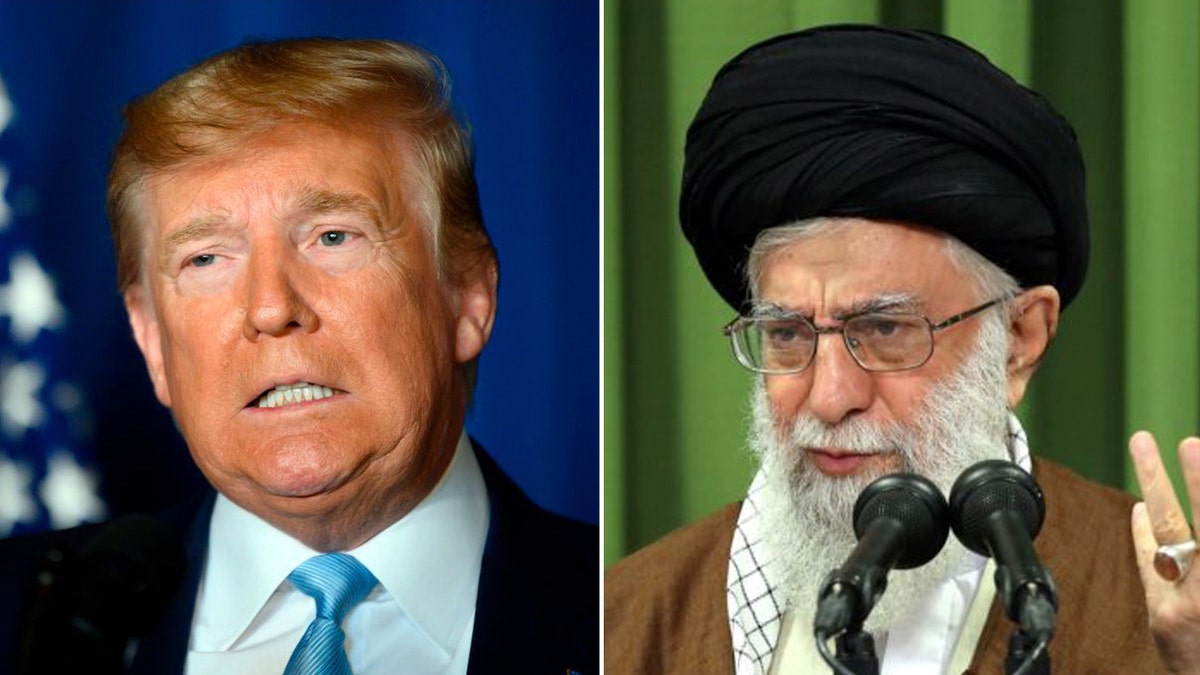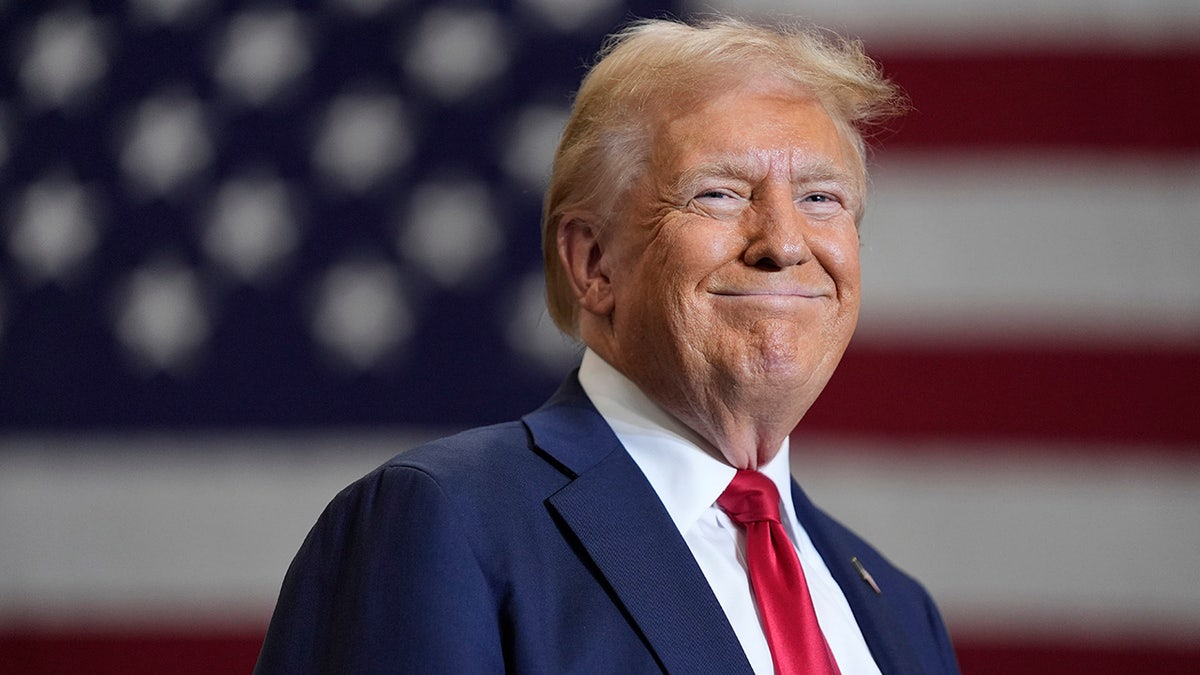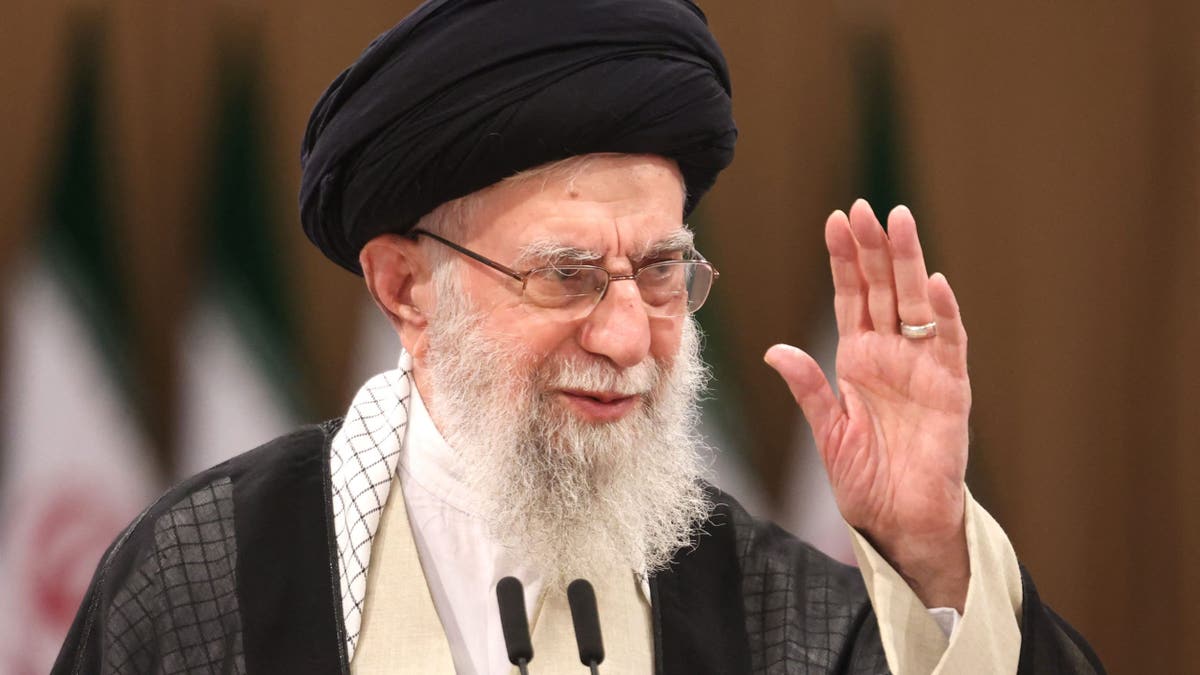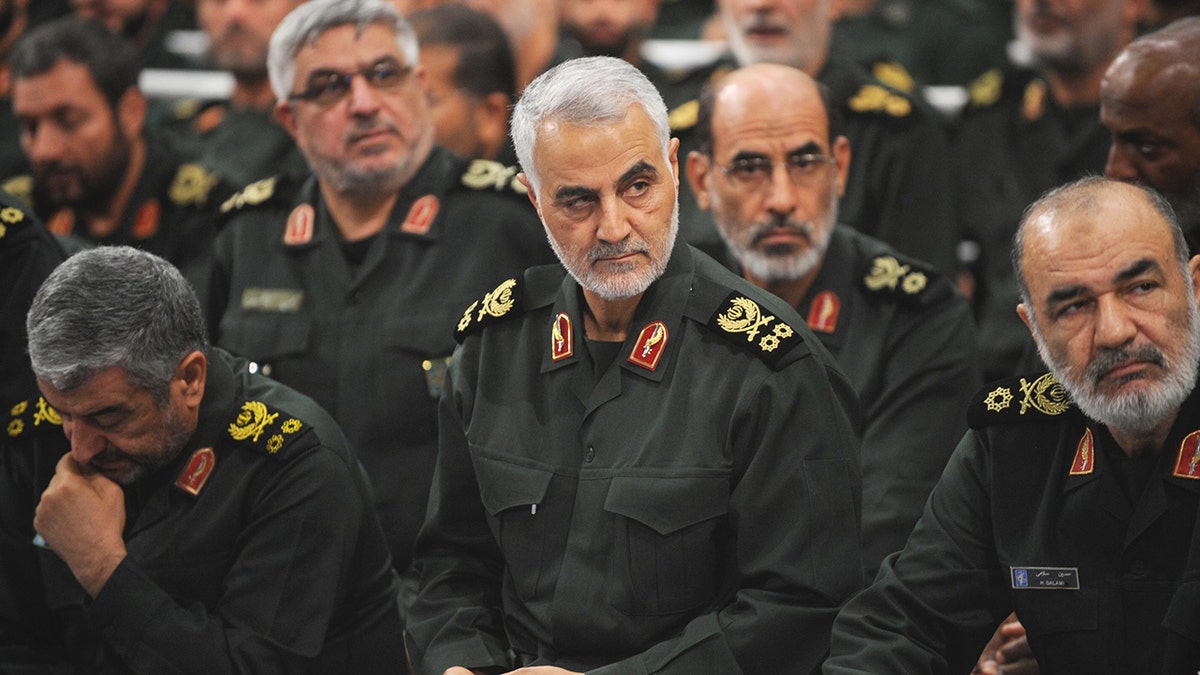After President-elect Trump’s victory, Iran must now prepare to contend with the man it’s been trying to assassinate for years.
Tehran had reportedly been interfering in the U.S. election on behalf of Vice President Kamala Harris. But with former Trump’s win, the regime will have to prepare for a U.S. leader who is, at the very least, a wild card.
On Wednesday, the Telegram channel of Iran’s Islamic Revolutionary Guard Corps (IGRC), its military force, posted a video threatening to kill Trump. It ended with footage of a bloodied Trump and the words “We will finish the job.”
Iran has long vowed revenge for Trump approving the 2019 killing of Gen. Qassem Soleimani.
IRAN-BACKED IRAQI MILITIA ATTACKS HAIFA, ISRAEL WITH DRONES

President-elect Donald Trump and Iranian leader Ali Khamenei (Getty Images)
“The Islamic Republic has to be terrified that the presidential candidate that they tried to kill has just won the election,” Behnam Ben Taleblu, an Iran expert at the hawkish Foundation for Defense of Democracies (FDD) think tank, told Fox News Digital.
“The regime knows it can ill afford more exogenous economic shocks. Even the return of maximum pressure alone to the Islamic Republic is going to cause major, major economic problems.”
Iran’s currency tanked to an all-time low Wednesday after Trump clinched victory, signaling its challenges are far from over in the Middle East as war rages on through proxies in both Gaza and Lebanon.

After Tuesday’s victory, Iran must now prepare to contend with the man it has been trying to assassinate for years. (AP Photo/Evan Vucci)
The rial traded at 703,000 rials to the dollar, traders in Tehran said, breaking a record before recovering slightly later in the day to 696,150 to $1.
In 2015, at the time of Iran’s nuclear deal with world powers, the rial was at 32,000 to $1. On July 30, the day Iran’s reformist President Masoud Pezeshkian was sworn in and started his term, the rate was 584,000 to $1.
And despite U.S. sanctions that critics claim have not been enforced, Iran has been able to export near-record amounts of oil, around 1.7 million barrels per day.
At the same time, Iran could ramp up production to build a nuclear weapon in a matter of weeks by many estimates.
“Tehran knows maximum pressure is set to return,” said Taleblu. “During this lame duck period, the nuclear saber rattling threat has to be taken seriously, particularly when its conventional deterrence has been so badly beaten.”
After the Trump administration pulled out of the Iran nuclear deal in 2018, it imposed harsh sanctions on the regime to stop its funding of proxies abroad, banning U.S. citizens from trading with Iran or handling Iranian money.
It also punished entities in other countries that did business with Iran by cutting them off from the dollar.

Iran’s supreme leader, Ayatollah Ali Khamenei, has led the yearslong campaign to assassinate Trump. (Atta Kenare/AFP via Getty Image)
President Biden often waived enforcement of such sanctions, keen to bring Tehran back to the negotiating table to prevent it from acquiring nuclear weapons and fearful of driving up global oil prices.
Iran gained access to more than $10 billion through a State Department sanctions waiver that allowed Iraq to continue buying energy from Iran, which the Biden administration argues is necessary to keep lights on in Baghdad.
White House National Security Council spokesperson John Kirby has insisted none of the funds go to the IRGC or Iran’s Supreme Leader Ayatollah Ali Khamenei but are “for humanitarian goods.”
IRAN THREATENS TO USE MORE POWERFUL WARHEADS AGAINST ISRAEL IN NEXT ATTACK: REPORT
Iran must also now factor an imminent Trump presidency into how it escalates war with Israel. Israel responded to Tehran’s strikes on Tel Aviv last month with attacks on Iranian military sites, and now Khamenei has vowed harsh countermeasures.
“Trump’s victory will give Iran pause as it considers striking back at Israel in their tit for tat,” said Sean McFate, adjunct professor at Syracuse University’s Maxwell School of Citizenship and Public Affairs.
“During Trump’s previous administration, he scuttled the Iran Nuclear Deal (JCPOA), strongly embraced Israel and sought to normalize Jewish-Arab relations in the region. I doubt he will support the Palestinians, and he will likely end the Biden-Harris dual policy of support to both sides in the Gaza conflict. None of this is good for Iran.”

Trump ordered a drone strike on Iranian Quds Force commander Qassem Soleimani, center, in 2019. (Press Office of Iranian Supreme Leader/Anadolu Agency/Getty Images)
But others predicted Trump may actually be less supportive of Israel, Iran’s No. 1 foe in the region, than the Biden administration due to his anti-interventionist tendencies.
“There’s the unpredictability factor with Trump,” said Chuck Freilich, former deputy national security adviser in Israel. “They don’t know. They’ll be cautious from that point of view with him and more so than they would have been with Biden.”
“Will they be willing to do what has to be done to prevent Iran from crossing, and that may include military action? The Republican Party has become isolationist.
“Biden sent aircraft carrier groups [near Israel] on four occasions in the last year. That’s an unprecedented deployment of American force, both in support of Israel and to deter Iran. Is [Trump] willing to do that?” he added. “I think he will be maybe even less inclined to use military force than Biden would have been.”
Officially, Iran brushed off the suggestion a Trump presidency could inflict damage on the regime.
“The U.S. elections are not really our business. Our policies are steady and don’t change based on individuals. We made the necessary predictions before, and there will not be change in people’s livelihoods,” government spokesperson Fatemeh Mohajerani said, according to the semi-official Tasnim news agency.
Source:
www.foxnews.com
Source link

